Secondary education
Secondary education
The first and second cycles of Secondary Education at Urdaneta School are located in separate buildings, providing first-cycle students with a more comfortable environment among peers of similar ages. Likewise, second-cycle students share a building with Baccalaureate students.
Close coordination between both cycles allows for a cohesive educational path focused primarily on preparing students for Baccalaureate studies. Students at this stage have 32 hours of class per week, two hours more than the official schedule, increasing the time dedicated to core subjects.
As part of our ICT Action Plan, we have introduced the 1×1 project at this stage. This project aims to virtualize classrooms, equipping each student with their own digital device as the main learning tool.
The integration of teacher-developed digital content, digital book licenses, and access to a wide array of digital resources and tools instead of traditional textbooks promotes teaching and learning models based on innovative methodologies (such as cooperative learning and project-based work). These approaches maximize the opportunities offered by ICT for optimal student development.
In each year of this stage, students can select an elective subject that allows them to personalize their learning.
Everything you need to know
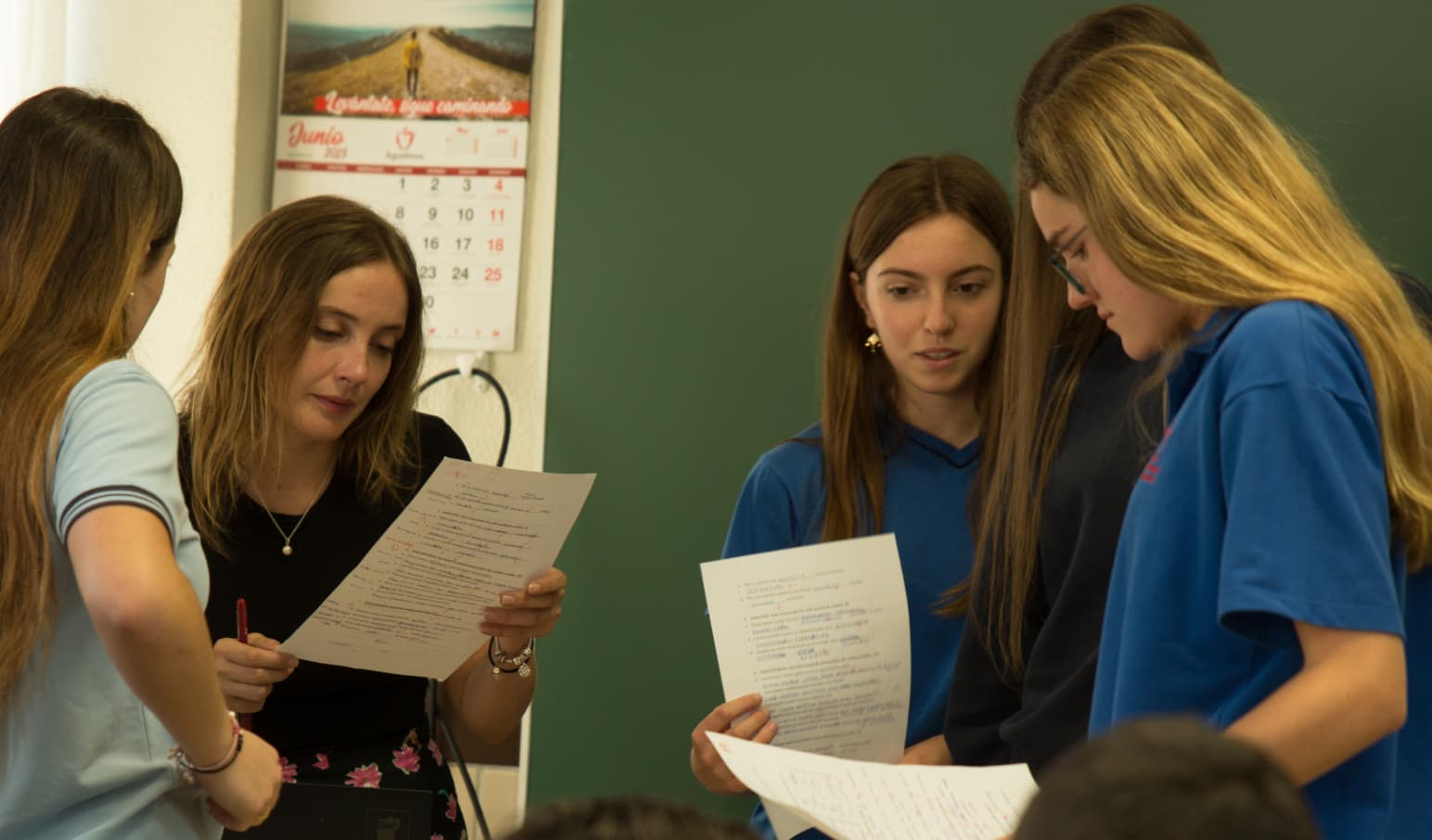
Linguistic project
Our trilingual model has reached the 1st year of ESO. Year after year, we continue to implement effective methodologies to enhance our students’ language skills.
At this level, we offer an additional language: French, which can be taken as an elective throughout the entire stage. We also provide a Language Workshop, designed for students interested in languages. This elective focuses on developing skills in both oral and written expression through practical, hands-on activities.
Our experience in language teaching is extensive. We utilize CLIL (Content and Language Integrated Learning) and TIL (Integrated Language Treatment) methodologies. At this stage, our center organizes exchanges with foreign schools, allowing students to immerse themselves in different cultures and strengthen their language abilities.
Starting in the 2nd year of ESO, students can also opt for the Dual Baccalaureate, which enables them to earn the same qualification as American students upon completing high school. This qualification is recognized across all states and by universities worldwide.
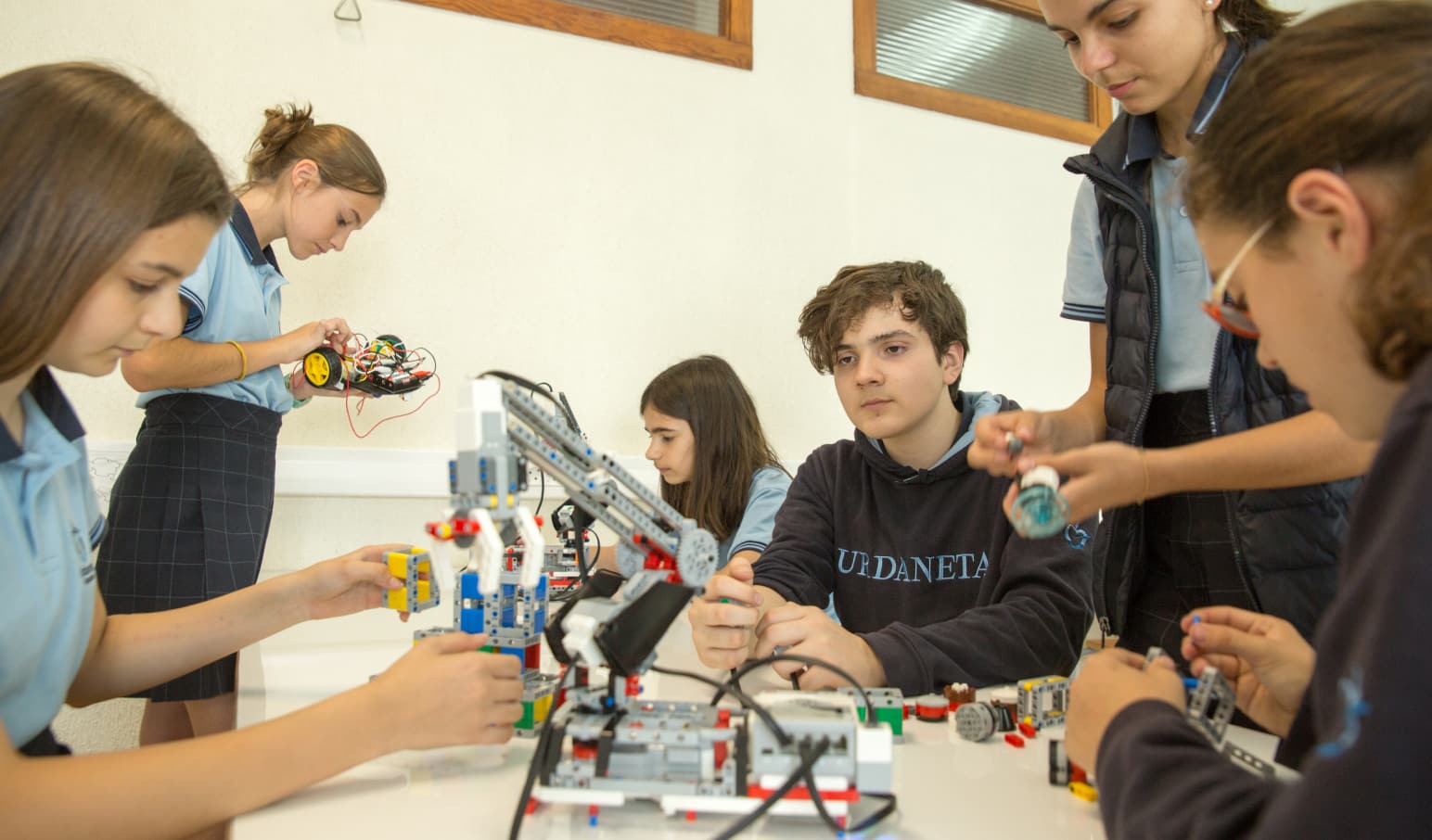
STEAM
The teaching approach for science and technology is consistent across the entire school, and at this stage, it is implemented through various interventions.
The amount of time dedicated to mathematics has been increased, and students who struggle with learning and understanding mathematical concepts are offered additional support known as “Mathematics Reinforcement”. The goal is to provide these students with reinforcement and a simplified understanding of the subject through personalized attention.
Similar to other stages, the science subjects aim to present theoretical concepts in an experiential manner, making the learning process more meaningful.
Students have the opportunity to expand their knowledge of robotics through the use of advanced applications and to the world of robotics and programming. They will learn how to create complex and modular constructions, apply programming and communications techniques, and work as a team to develop applications for mobile devices and robots. Some students have achieved impressive results in fairs and competitions, such as the First Lego League and Elhuyar Zientza Azoka.
This, being the tradition here in our school every year on the occasion of Science, Technology, and Innovation Week, requires one to be actively participating in the different activities leading to the understanding and appreciating of science and technology’s contribution in our lives.
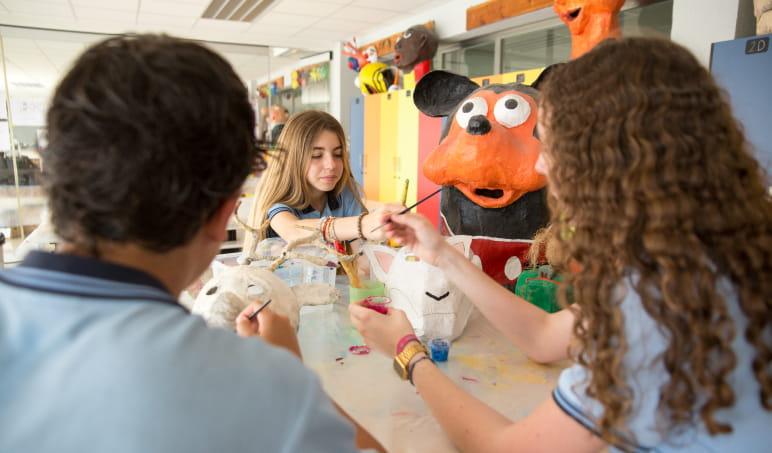
Social culture and art to learn to enjoy
The visual arts at this stage focus on creative expression through the use of plastic and visual language, aiming to connect these artistic tools with other fields of knowledge. The use of plastic language is crucial for representing emotions, feelings, experiences, and ideas, contributing to communication, critical reflection, and mutual respect.
In addition, various cultural activities complement classroom learning, such as visits to the Eitb, the Archaeological Museum, and the Ferrería del Pobal, as well as attending operas at the Euskalduna Palace. Students also have the opportunity to enjoy plays in multiple languages, performed by specialized theater companies.
Information and Communication Technologies (ICT) empower students to become creators of information. This 4th ESO elective leverages communication skills as a key part of their education, preparing them for the future while helping them adapt to new learning habits, fostering creativity, and enhancing their communication abilities.
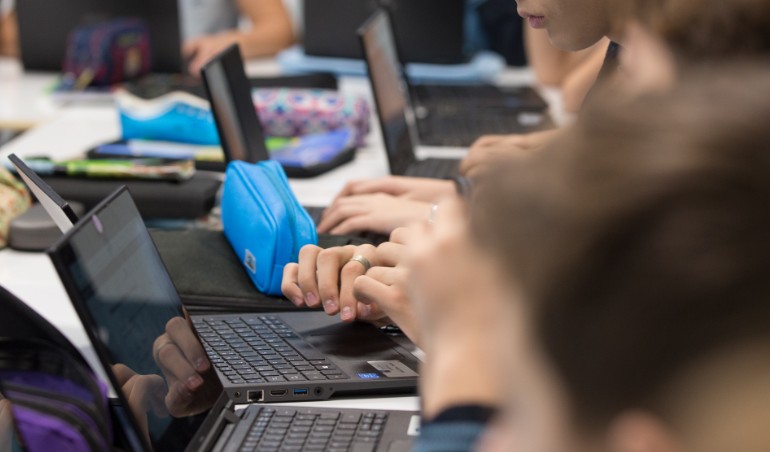
Attention to diversity
Attention to diversity is a fundamental pedagogical principle for us, which is why we strive to meet the individual needs of each student, aiming to help each one achieve their maximum potential development.
The personalized attention from tutors and teachers is complemented throughout the stage with various split classes and educational support, allowing us to work more closely with small groups of students.
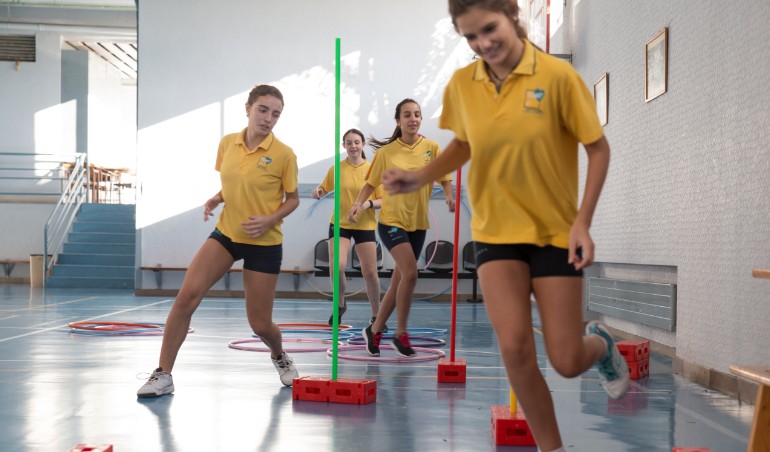
Sport
Every week, students spend one of their Physical Education sessions perfecting their swimming skills at the school facilities.
Our commitment to offering a wide range of sports enables students who wish to do so to continue participating in our teams, initially in school competitions and then in federated competitions.
Training schedules are set after classes, and the school provides a sports bus service to transport students home after their extracurricular activities.
During vacation periods, the Sports Club organizes camps in various sports, and throughout the year, it hosts a range of activities such as Handball Day, Hockey Day, basketball tournaments, school cross-country races, etc.
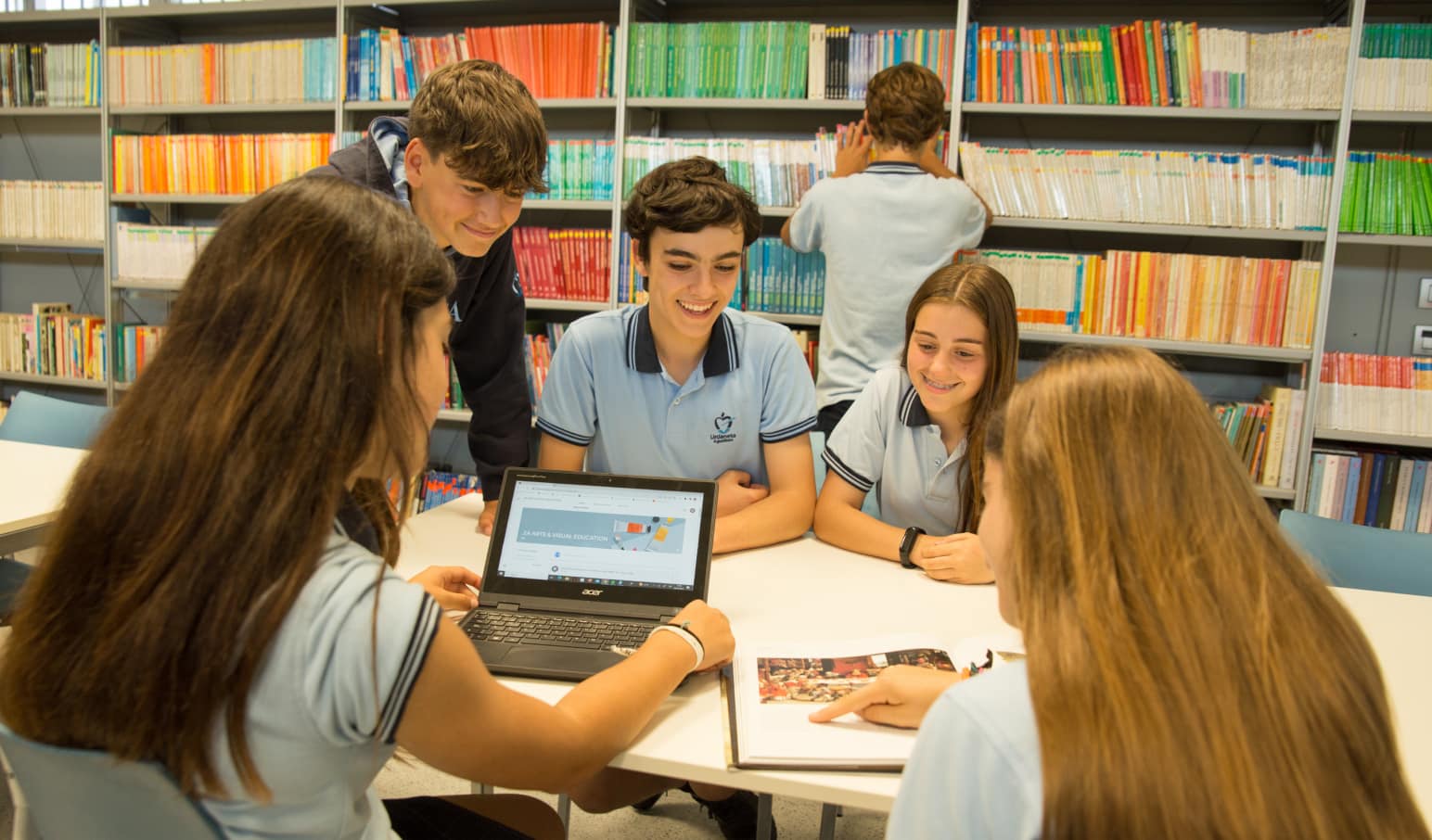
Life in Secondary
As a complement to their comprehensive training in all courses, our students have the opportunity to attend different talks given by specialized personnel : Ertzaintza (bullying, cyberbullying, civic behavior or drug use), book authors, talks on social exclusion. In addition, as a complement to what is worked on in the classroom, numerous cultural outings are organized.
Coexistence
All our ESO students enjoy a day of coexistence outside the school environment every year, organized by the Pastoral Department . This is an important activity in the school educational project, intended to promote the consolidation of the group through coexistence and education in values.
Interclasses-parties
For our students, the preparation and celebration of the school parties constitute one of the most important moments of the year. These days are full of sports and recreational activities (gymkhanas, gastronomic contests, playbacks, games, performances…), in which our young people participate with enthusiasm. They begin with interclass competitions, in which students passionately defend their classrooms in various sports categories, in an attempt to reach the finals.
Special attention should also be paid to the costume parade. Each class participates, in a responsible and autonomous manner, in the preparation of a choreography that culminates on the day of the parade, in an event open to all families, who come in droves to enjoy it.
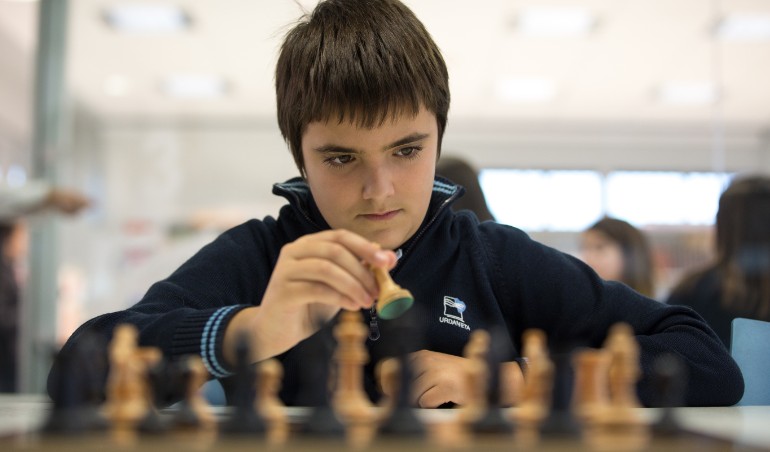
Extracurricular activities
n Secondary School, we offer numerous extracurricular activities, which take place after school: in-depth language activities, cultural activities (theater, music, painting, chess, etc.), and various sports disciplines. They constitute an adequate complement to academic activity, contributing to the physical and intellectual development of students at this stage.
The school has a bus service to return to their homes during extracurricular hours.
